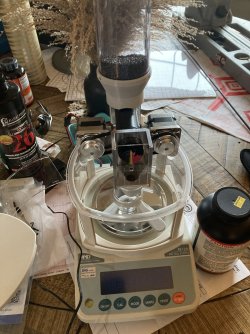To my humble way of thinking, none of the auto powder measures are accurate enough. Everybody here is supposedly loading for accuracy or velocity. We load ladders at .1 or .2 grain intervals to find the load that is the most accurate for our rifles, then rely on some form of powder measure to throw charges to 0.0 grains difference from what we have so carefully worked up as the most accurate. Powder measures/throwers as some call them, are not 0.0 gr accurate. I electronically weigh each powder charge that goes into every rifle cartridge that I load. I find that my powder measure varies by up to .4 gr for each charge, especially when using extruded powders like IMR or H 4350 and the like. Flake and ball powders are much more accurate but can still vary up to .2 gr either way. Not only does this affect accuracy, but safety also when loading max charges. If you want accuracy, throw short and trickle up to the desired charge. I use the approach to charge method, throw light then slowly trickle until the desired charge weight shows on the scale. I have found that by doing this I can load the most accurate powder charge possible. And before you ask, yes this method is used for all rifle ammo, no matter whether it is practice, match or hunting ammo. Time consuming, absolutely. Is it worth it, absolutely. Once a load is established sub moa becomes the standard not the desire. There are very few fliers and I can attribute any flier to me, not the rifle or ammo.

